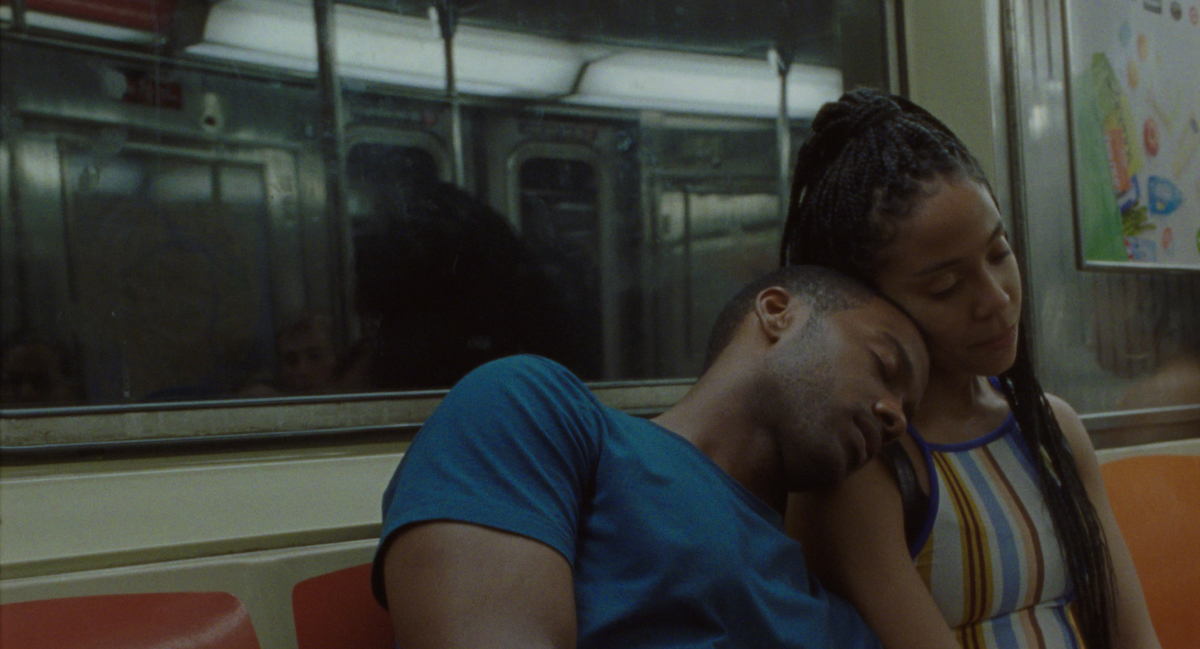‘Premature’: Film Review
By Peter Debruge
LOS ANGELES (Variety.com) – There’s poetry in “Premature” — literally, if not always cinematically. Zora Howard, a spoken word artist and sometime actor who reunites with director Rashaad Ernesto Green for his second feature (they collaborated more than a decade earlier on a short of the same name), plays Ayanna, a tentatively romantic Harlem teenager navigating a relationship for which neither side seems ready.
When confronted with questions, Howard’s character can be found scribbling in her private journal. “What did I know of my heart before you gave it shape?” she recites at one point, an evocative line that will later inspire the lyrics to her first love song. Ayanna writes what she knows, as do Green and Howard (the verses heard in voiceover are her contribution), resulting in one of those labors of love made on almost no budget that rather clumsily retreads familiar ground, doing so from a less common perspective — that of a young black woman.
“Premature” offers a ground-level alternative to more sensationalistic, adversity-themed African American stories. Green filmed on 16mm, occasionally grabbing scenes without permits on actual New York streets, which lends a kind of unfussy authenticity to the material. A few key shots appear out of focus; others might have been improved with more time, more takes or simply more experience. And yet, while “Premature” may seem less professional than your average Sundance movie (much less entry-level studio fare), that doesn’t diminish what’s fresh, vulnerable and true about the film.
Amid a vast sea of precocious coming-of-age stories, in which characters so often seem implausibly wise for their age, “Premature” acknowledges how tough the transition to adulthood can be for anyone with limited role models, obliged to steer by trial and error. More importantly, it reminds how rarely we see black adolescence treated seriously on-screen, even now, two years after “Moonlight” led some to believe the balance of representation was improving. (It’s telling that “Waves” went virtually unwatched last fall.)
Though it shares a title in common with Green’s 2008 short — which featured Howard as a 14-year-old who feels she has nowhere to turn after learning that she’s pregnant — “Premature” imagines a new role and unfamiliar challenges for the same actor. And yes, an unplanned pregnancy factors into both. Howard is visibly older now, but still capable of playing naive, which helps to convince audiences that she’s just 17.
Howard comes across as confident among her closest friends but uncertain around Isaiah (Joshua Boone), who’s slightly older and arguably more mature when it comes to dating. They spot each other on the neighborhood basketball court, and again at the laundromat. Though Isaiah behaves like a gentleman, Ayanna is wary.
“Premature” isn’t “Precious” or “Pariah” all over again. Those films served their purpose but described a narrow sliver of the black experience — as did Green, in his terrific 2011 directorial debut, “Gun Hill Road,” about a trans teen’s coming of age. By contrast, “Premature” aspires to a more universal approach. You could be Ayanna, or vice versa. What makes her exceptional isn’t her background but her aptitude for translating her emotions into verse: “We were too young to love this old.”
At the outset, Ayanna has her sights set on college. She lives at home with a hard-working mom (Michelle Wilson) who’s flawed, but hardly to the degree of the grotesque stereotypes so often depicted (like the TV-hurling monster Mo’Nique played in “Precious”). In any case, she’s not really someone Ayanna can turn to with intimate questions about what she’s going through. At first, Isaiah seems like a decent guy, and the love scenes between the two are beautifully rendered, as Green captures a mutual vulnerability in their connection. It’s all in the way they look at each other.
Then something happens that shakes Ayanna’s trust, and she acts out as one might at her age, aggravating the situation. A decade or so ago, a wave of indie films from directors like Joe Swanberg, the Duplass brothers and Barry Jenkins (in his wonderfully wordy “Medicine for Melancholy”) emphasized the central importance of communication in budding relationships — serving as an overdue antidote to the centuries-old dramatic conceit that keeping secrets from one’s partner can lead to misunderstandings.
Green goes the other way, presenting Ayanna as someone who easily confides in her notebook what she can’t say to her boyfriend. The film gives us a taste of those thoughts early on — via Howard’s performance, and the poetry she reads — but can be hard to interpret in other cases, as when Ayanna discovers that she’s pregnant. That situation plays out differently than it did in the short, though it feels underdeveloped. In the interval between the two projects, Green has directed another feature and a fair amount of television, so it’s strange to see him stumbling over plot and technique in places here. The film’s title wasn’t intended to apply to its creator, and yet, Green clearly has some growing to do as well — though that’s not such a bad thing in a story like this. The Independent Spirit Awards weren’t wrong when they named him “Someone to Watch.”

